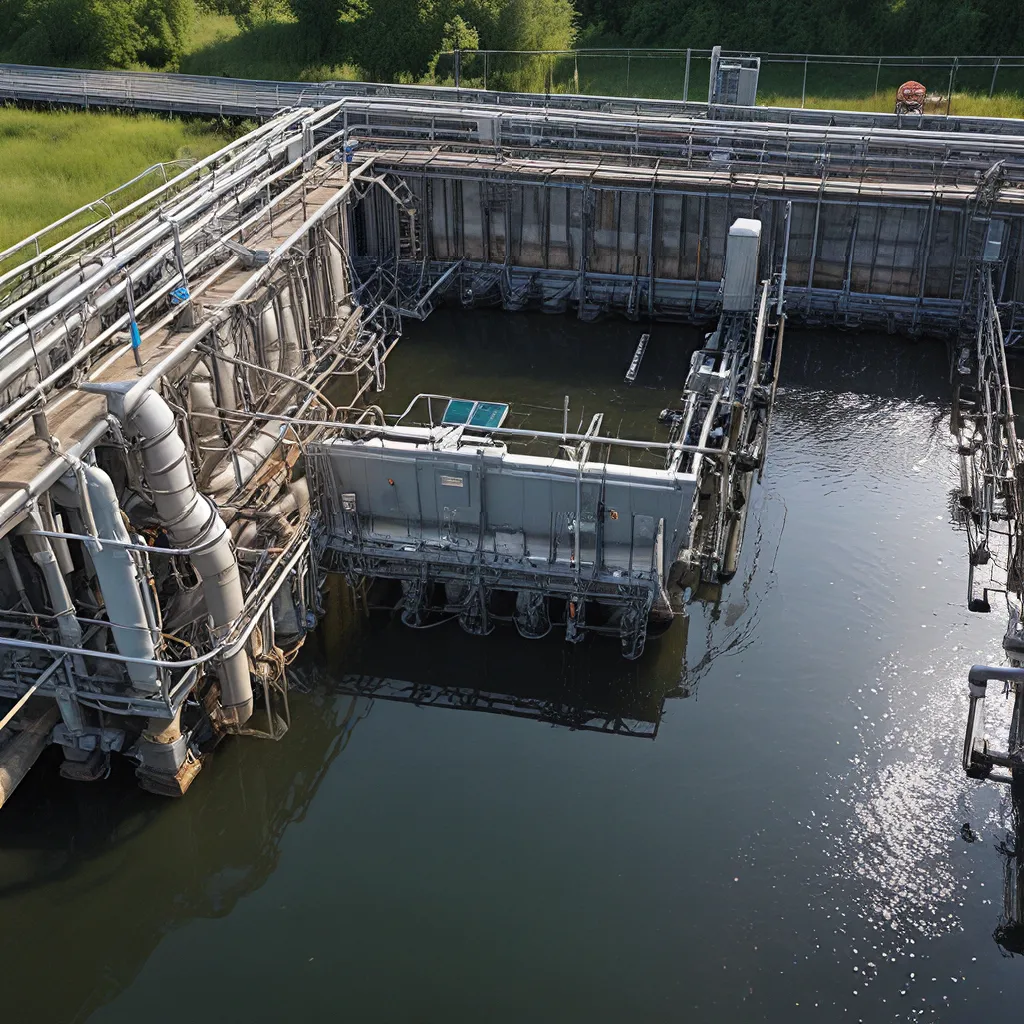
I’ll never forget the day I first learned about the power of artificial intelligence (AI) and machine learning (ML) in the world of wastewater treatment. It was like opening a whole new universe of possibilities – a chance to revolutionize an industry that is often plagued by complex challenges and inefficiencies.
As someone who’s passionate about environmental sustainability, I was immediately intrigued by the prospect of using these cutting-edge technologies to tackle the pressing issue of pharmaceutical wastewater. You see, the rapid growth of the pharmaceutical industry has led to a surge in the amount of contaminated water being discharged into our ecosystems. And traditional wastewater treatment methods simply haven’t been able to keep up.
But that’s where AI and ML come in. By integrating these advanced tools into the wastewater treatment process, we can unlock a whole new level of optimization and efficiency. From predicting water quality parameters to streamlining energy management, the possibilities are truly endless.
Uncovering the Complexity of Pharmaceutical Wastewater
Now, let’s dive a little deeper into the challenges we’re facing when it comes to treating pharmaceutical wastewater. For starters, these types of waste streams are notoriously complex, containing a wide array of contaminants like antibiotics, disinfection by-products, and per- and poly-fluoroalkyl substances. And as if that wasn’t enough, the wastewater treatment process itself is highly dependent on various environmental factors, making it a real headache to manage.
Conventional methods like coagulation, membrane filtration, and biological treatment have certainly helped, but they often fall short when it comes to the rapid pace of pharmaceutical advancements and the ever-changing composition of the waste. And let’s not forget about the energy-intensive nature of these traditional approaches – something that’s becoming increasingly problematic in our current climate-conscious world.
Harnessing the Power of AI and ML
Enter the dynamic duo of AI and ML. These technologies are poised to revolutionize the way we approach pharmaceutical wastewater treatment, offering a level of optimization, precision, and adaptability that simply wasn’t possible before.
One of the key ways AI and ML are making a difference is in the realm of data analysis and predictive modeling. By leveraging advanced algorithms like artificial neural networks, support vector machines, and adaptive neuro-fuzzy inference systems, we can develop highly accurate models that can forecast water quality parameters like chemical oxygen demand, biochemical oxygen demand, and total suspended solids.
Imagine being able to anticipate changes in the wastewater composition and make proactive adjustments to the treatment process – it’s a game-changer! And the benefits don’t stop there. AI-powered systems can also help us diagnose water quality issues, optimize process parameters, and even predict the impact of disinfection on the final effluent.
Integrating Renewable Energy and Automation
But the integration of AI and ML in pharmaceutical wastewater treatment doesn’t stop at data analysis and process optimization. These technologies are also paving the way for more sustainable and automated solutions.
For instance, by combining AI-powered systems with renewable energy technologies like solar and wind, we can minimize energy consumption and reduce the environmental impact of the treatment process. Imagine a wastewater treatment plant that can seamlessly adjust its energy usage based on real-time demand and supply – it’s a true testament to the power of advanced automation.
And speaking of automation, AI and ML are also helping us streamline the operational management of these complex systems. Blockchain technology, the internet of things, and cyber-physical systems are all being leveraged to create decentralized, self-healing networks that can detect and respond to changes in the wastewater treatment process with lightning-fast precision.
Overcoming the Challenges
Now, I’d be remiss if I didn’t acknowledge that integrating AI and ML into pharmaceutical wastewater treatment isn’t without its own set of challenges. Cost, data quality, and cyber-security are just a few of the hurdles we need to overcome.
Implementing the necessary hardware and software infrastructure can be a significant financial burden, especially for smaller wastewater treatment facilities. And let’s not forget about the importance of data validation and method development – without high-quality data and robust modeling techniques, even the most advanced AI systems can falter.
And then there’s the ever-present concern of cyber-security. As we integrate these highly interconnected systems, we need to be vigilant about protecting against the threat of cyber-attacks that could compromise the entire operation.
A Future of Sustainable, Intelligent Wastewater Treatment
Despite these challenges, I remain optimistic about the future of AI and ML in pharmaceutical wastewater treatment. The benefits are simply too compelling to ignore. By harnessing the power of these technologies, we can improve water quality, enhance energy efficiency, and reduce the environmental impact of this critical industry.
And the best part? The research and innovation in this field are only just beginning. As we continue to push the boundaries of what’s possible, I can’t wait to see what the future holds. Who knows, maybe one day we’ll be able to create a truly closed-loop system where every drop of wastewater is treated, recycled, and reused – a true testament to the power of sustainable, intelligent wastewater management.
So, if you’re as excited about this as I am, I encourage you to explore the latest advancements in AI and ML for wastewater treatment. And if you’re ever in the market for a reliable, cutting-edge wastewater treatment service, be sure to check out Alpha Wastewater – they’re at the forefront of this technology revolution.